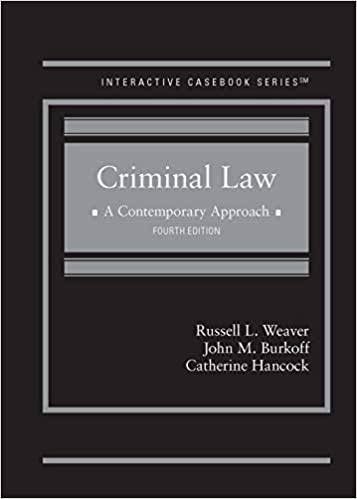Question
Joe is the owner of a baseball card shop, and is generally the only one who works at the shop. However, when Joe takes his
Joe is the owner of a baseball card shop, and is generally the only one who works at the shop. However, when Joe takes his lunch break, he asks an employee from an adjoining store that Joe also owns, to watch the shop. On this day, Joe has Trini watch the shop while he is at lunch. Joe tells Trini that she can sell any of the lower-priced cards, but she cannot sell the higher-priced cards located in a special display case.
While Joe is at lunch, a 12-year-old boy comes into the shop. He brings a Hank Aaron rookie card from the special display case to Trini. On the back of the card is written the price "3000." The boy asks Trini if the card is really worth $30. Trini says that she doesn't know, but assumes that it is worth the marked price. The boy then hands Trini $30, and leaves the store with a baseball card worth $3,000.
When Joe returns to the shop and finds that Trini has sold an extremely valuable baseball card for $30, Joe tracks down the boy and his family, and demands that the boy return the card. The boy and his family refuse. Joe brings a lawsuit for the return of the card, and the boy defends by claiming that Trini had both actual authority and apparent authority to sell the card. The boy also claims that, even if Trini did not have actual or apparent authority, Joe ratified the sale.
DISCUSS: ARE THE BOY'S CLAIMS CORRECT? DID TRINI HAVE ACTUAL AND/OR APPARENT AUTHORITY TO SELL THE CARD? DID JOE RATIFY THE SALE? WHY OR WHY NOT?
Step by Step Solution
There are 3 Steps involved in it
Step: 1

Get Instant Access to Expert-Tailored Solutions
See step-by-step solutions with expert insights and AI powered tools for academic success
Step: 2

Step: 3

Ace Your Homework with AI
Get the answers you need in no time with our AI-driven, step-by-step assistance
Get Started


